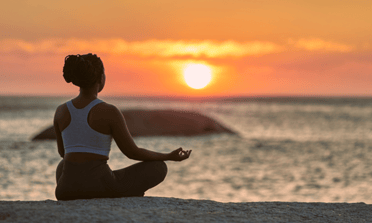Self-Care: Implications on Health and Happiness

Have you ever had a day where you could not catch up, and you put yourself on the back burner just to complete your tasks of the day?
We have all been there – not eating a full meal and just having a ‘quick bite’, rescheduling time to go to the gym, not enjoying your favorite things, staying in the office without taking a walk or getting some fresh air.
We need to stop neglecting ourselves and instead focus on our overall well-being. Self–care is an essential part of life that everyone should incorporate into their day. It is important for you to take time for YOU!
Defining Self–Care
Stressors are a natural part of life, but they can get to be too much and make you feel anxious, overwhelmed, tired or emotional. Everyday stressors (such as work and school) and chronic stressors (such as a medical crisis of a loved one or moving to a new home) need to be acknowledged and monitored.
When stressors arise, self–care is the solution!
The World Health Organization defines self-care as the ability of individuals, families, and communities to promote health, prevent disease, maintain health, and cope with illness and disability with or without the support of a health worker.
Self–care is one of the main tools you can indulge in; there are various practices and activities you can perform. By practicing self-care, we can not only reduce burnout but also decrease the likelihood of developing health issues.
The Impact on Your Health
When you take care of yourself, you feel, think, and do better.
Mental Health First Aid (for National Council for Mental Wellbeing) announced that 64% of Americans who practiced self-care had enhancement in self-confidence, 67% had an increase in productivity and 71% expressed happiness.
Mental Health America explains the health benefits of self-care:
- Less loneliness = lower blood pressure
- Social / community ties = 2x – 3x more likely to live a longer life
- Laughing = decrease pain and anxiety; promotes muscle relaxation
- Positive emotions = decreases stress hormones
- Meditation = decreases risks of cancer, chronic pain, asthma, and heart disease
There are seven areas of self–care that should be focused on for you to be your best self. The following areas do not need to be focused on all at once! Start with one area and when you are ready, continue to another.
- Mental – Having a clear mindset gives you the ability to make better decisions, concentrate and improves memory. Taking a break from technology and meditating is a great way to reduce stress and refocus.
- Emotional – By analyzing yourself, you can regulate your emotional responses and have better control when a challenge arises. Writing in a journal daily or listening to music can put you in a positive mood.
- Physical – Your body is always moving. Getting an adequate amount of sleep, nutrition (eating healthily and eating three meals a day), physical activity and good hygiene will help you feel good.
- Environmental – Your environment should be comfortable and enjoyable for you to thrive in! Put your phone down and explore a new area of your city/state or simply declutter your home.
- Spiritual – Defining your purpose in life is key to spirituality. Identifying values and figuring out what is most important in your life can assist with your feelings.
- Recreational – Have a favorite hobby or want to go on that road trip you have been pushing back? Go and do the things that are fun!
- Social – Whether you go out and mingle or take some time out to catch up with friends, it is important to have connections.
Creating Your Self–Care Plan
Need to incorporate self-care into your life? Follow these simple tips!
Examine your current life and what strategies you use. Write the positives and negatives about each of them.
What are your daily values and needs? Make a list and organize it by the seven areas of self-care. Then, determine what methods will support the values and needs.
Prioritize your needs and incorporate practices into your schedule. Let go of any bad habits or any other barriers that can interfere with your goals.
Behavioral Health Services
Self-care is an individualized approach that can be adapted to any lifestyle. However, if you find that you need assistance, there is help available!
The Connecticut Women’s Consortium has a Lunch and Learn series that features a segment title Radical Self–Care, which explores self–care and routines that we all should follow every day. Ruta P. Mazelis provides resources on healing methods and the importance of caring for ourselves.
The American Psychological Association shares resources that professionals and students can use when there are feeling stress, burnout, and distress.
The National Institute of Mental Health recommends seeking professional assistance before symptoms become too overwhelming, especially if there are severe symptoms that lasted over two weeks.
Every day, we are faced with stressors. Do not neglect yourself. You are important. Remember: Self–care isn’t selfish.
Subscribe for updates
_.webp)



